Mara Kinga Villő
“Even at the university, the en plein air painting attracted me. I liked to make small-size, jewel-like paintings. I looked for the connection of the landscape and the people, and for the regular forms in the landscape. For example, the straw bales are as beautiful decorations. They had positive impacts on me. That time I used the paint thickly. But as soon as I tried to paint larger sizes, it was no good. The fracture lived in a different way. The thick paint is only a formal compositional element now. I got out of the habit of using thick paints after the birth of my son. While he was baby, I could paint at night, when he was asleep, for I had to be constantly ready to see him at any time, so I was careful not to have painted hands.”
“Receiving the Erasmus scholarship, I chose Scotland. This country suited to my aloofness. For the astonishment of my mates, I wandered alone along the stone-fenced fields, and I found small chapels in hidden nooks. Although I could have remained there, I returned home after half a year. Deep in my soul, I had the feeling that I am an alien there. But I found later the same experience in the Gyimes landscape of Transylvania.”
“In the Scottish chapels I found a system of abstract motifs. As a miracle, this system appeared in the Transylvanian folk culture as well. I recognized a common language, which is the same everywhere.
“Generally I work in series, in which the motifs bring together the pictures. When I was at the textile major of the High School of Arts and Crafts, we learned how to draw patterns in layers. It is likely I accepted to think in series from here. Along the series of sketches, my thoughts can be followed.”
“It is said that my pictures are distressed. I do not consider so. You can see definitive lines on them, leading your vision, and squares and cubes give you security. The black cube, acting as a pedestal of a sculpture, connects the Heaven and the Earth, sparkling with inside lights.”
I like to frequent artist colonies. I preferred Somogyfajsz, because my son was eager to come with me there. This place was full of boyish things: old cars, the forest, and animal skulls. I do not know how he finds the latter. He gathers them as well. There is already some fifty pieces. The landscape is the finest between August and November; the mood is misty and mysterious. The grass is already yellow, as opposed its harshness of May.
A professor of drawing taught me to see the colors. He sent us to the window, and asked to observe the asphalt and the wallof the opposite house. He opened up our eyes to realise that the grey is not a single color. Later he explained the interaction of the colors. I use this phenomenon as well. For surprise, I sometimes put an unexpected color there, and your brain mixes what I want to be seen.”
„All of my paintings contains the maternity, the personality of my son, his passion to collect. At one time we were with a magnet on the streets, looking for broken objects. He was five years old when I revealed that if we mix all colors, the result will be grey. He made a drawing depicting two of us. When he presented, he said: ’Mom, this rope connecting us is grey, because it contains each colors’”.
PREVIOUS: Joseph Kadar
NEXT: Sallay Daniel
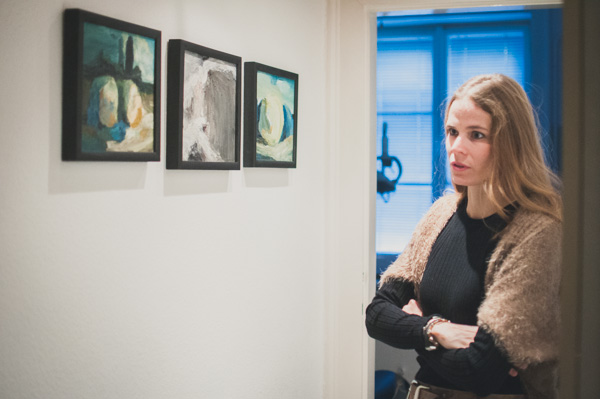
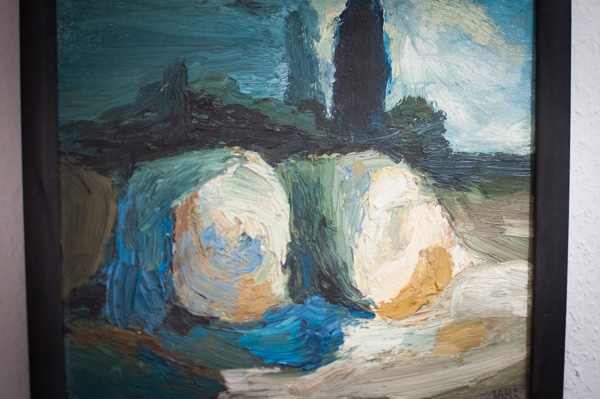
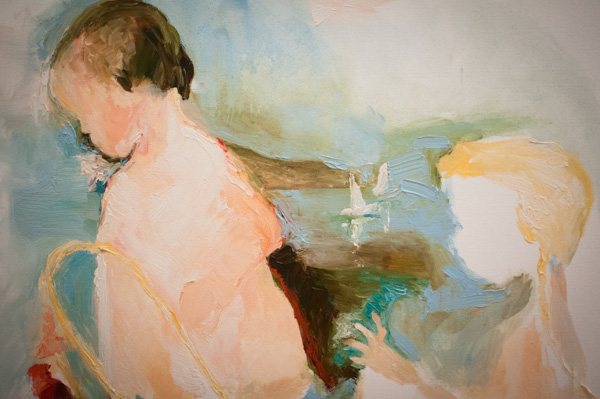
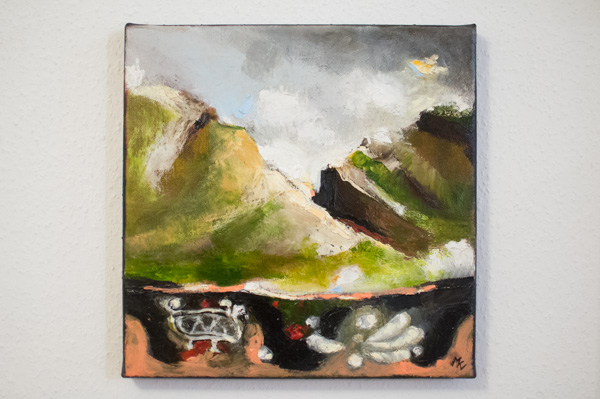
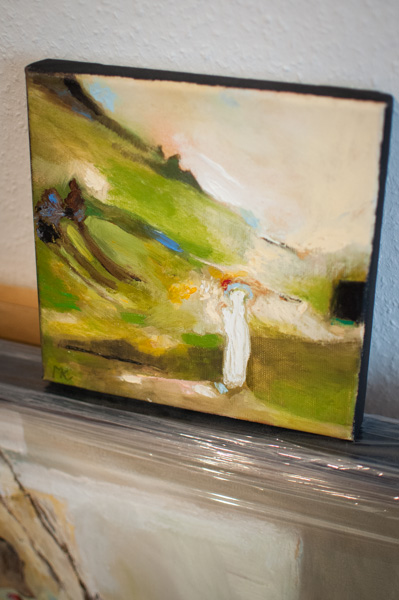
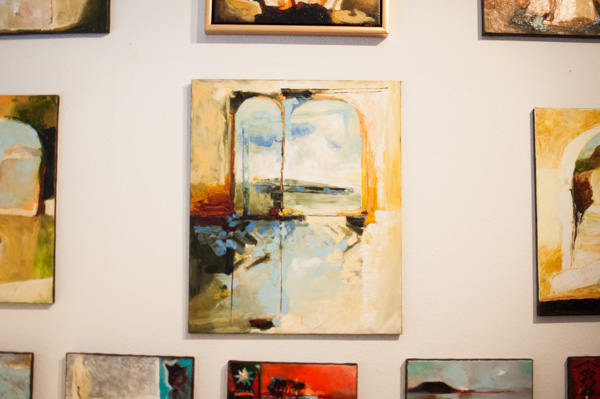
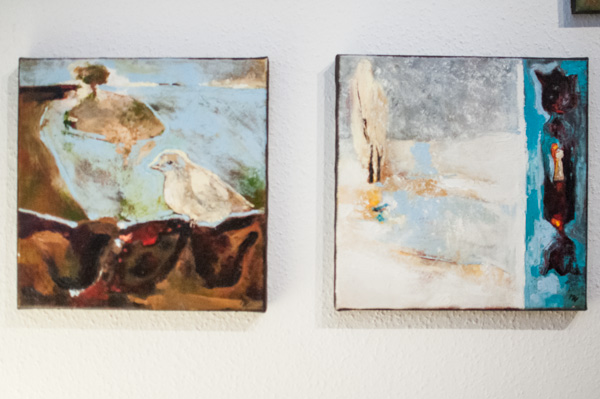
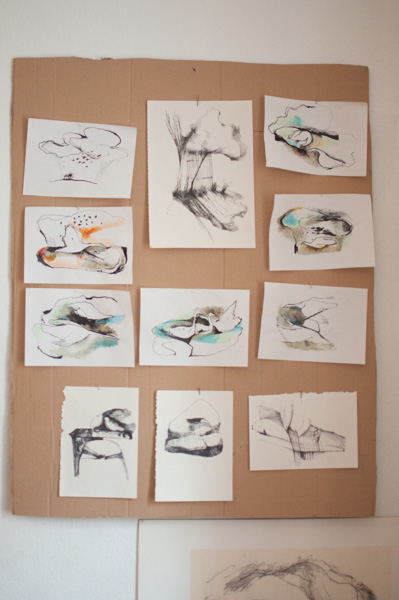
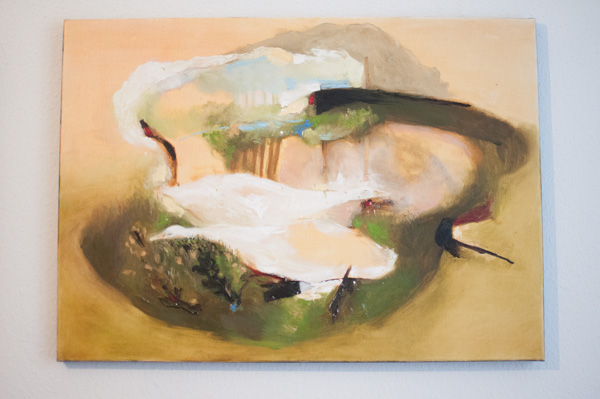
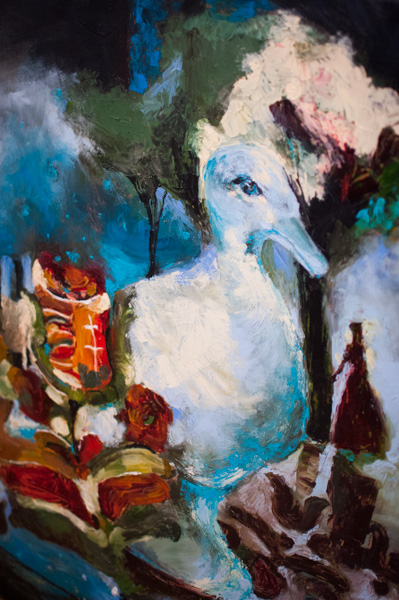
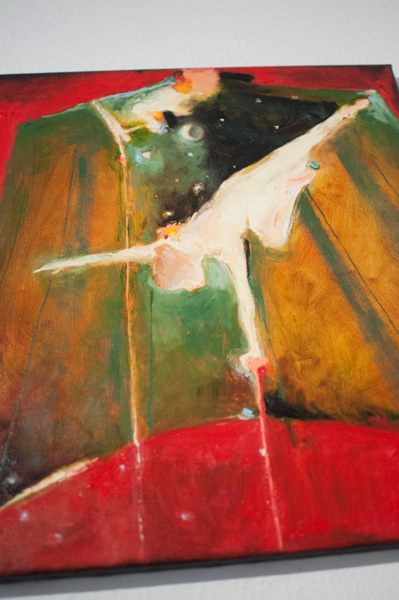
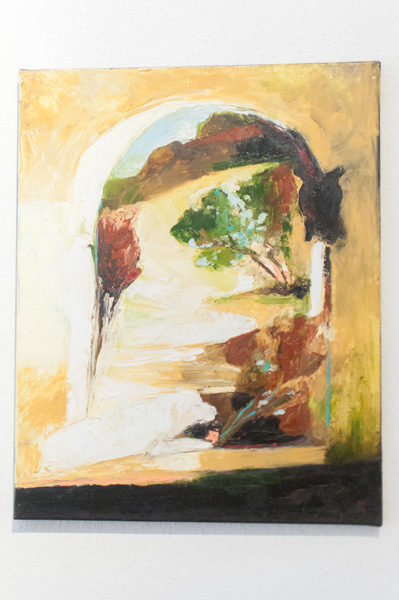
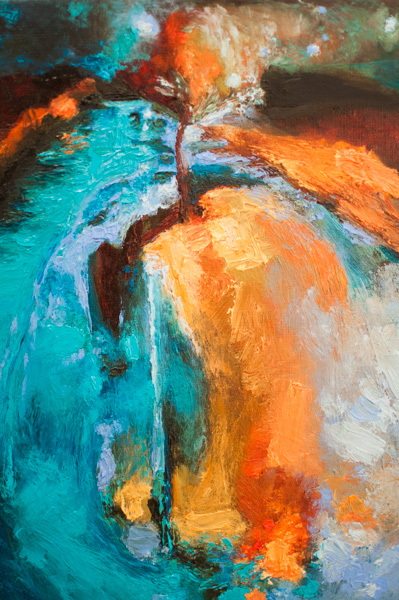
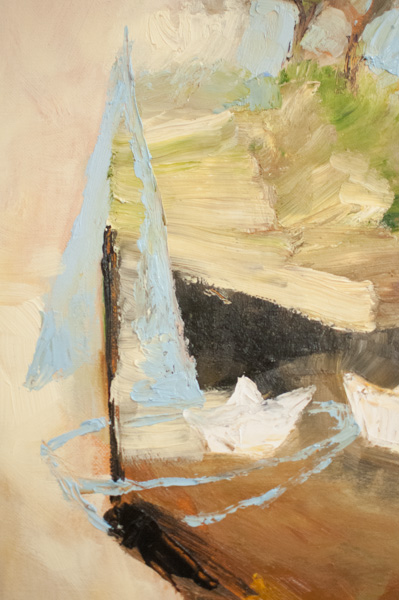
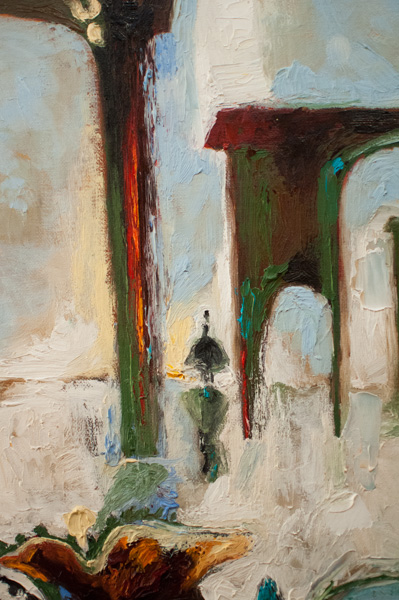
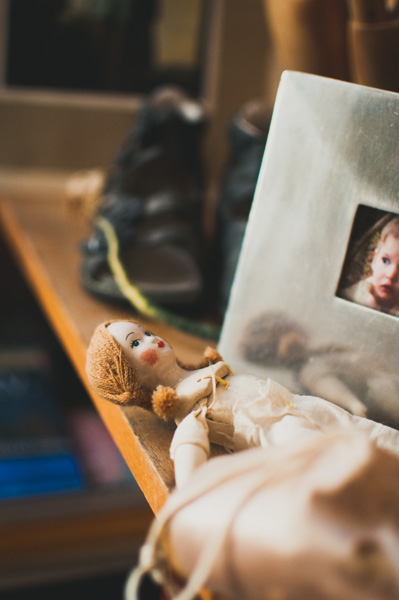
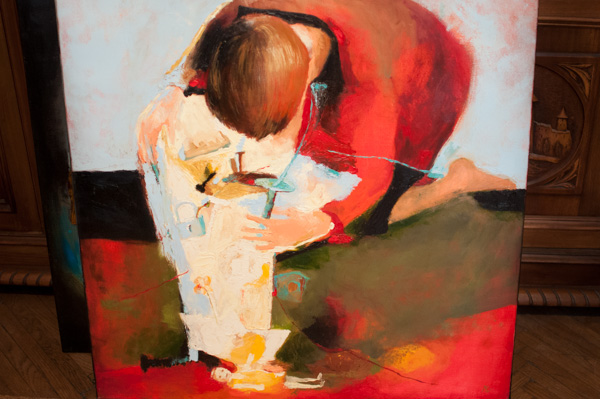
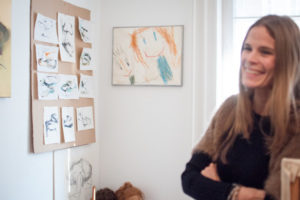
USER COMMENTS ( 0 )
Follow Comments via RSS feed. Trackback Comments from your website.